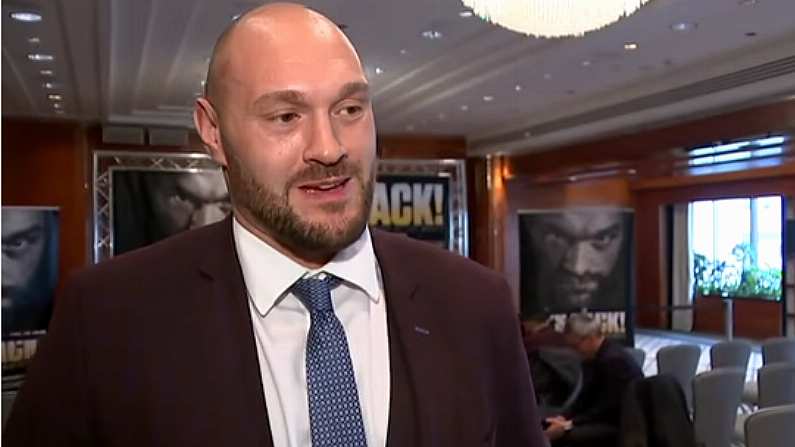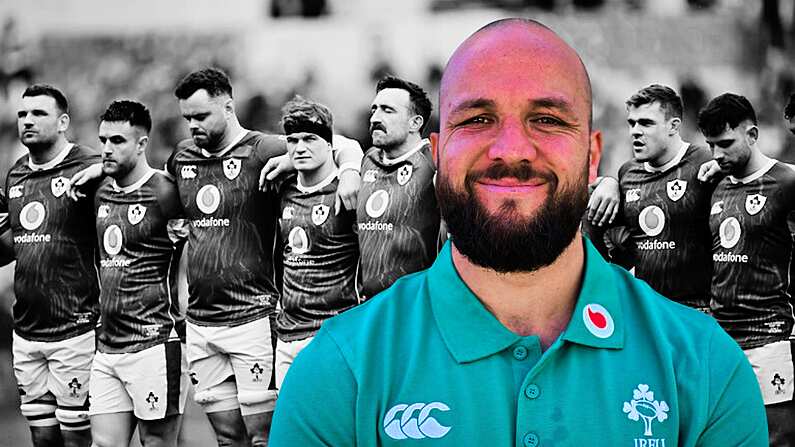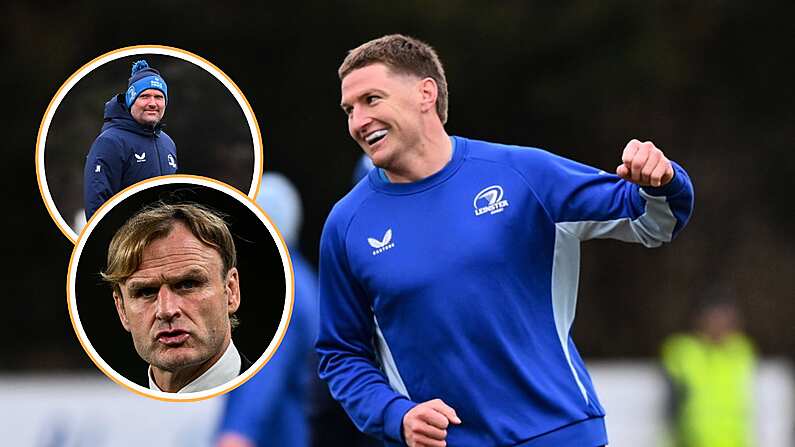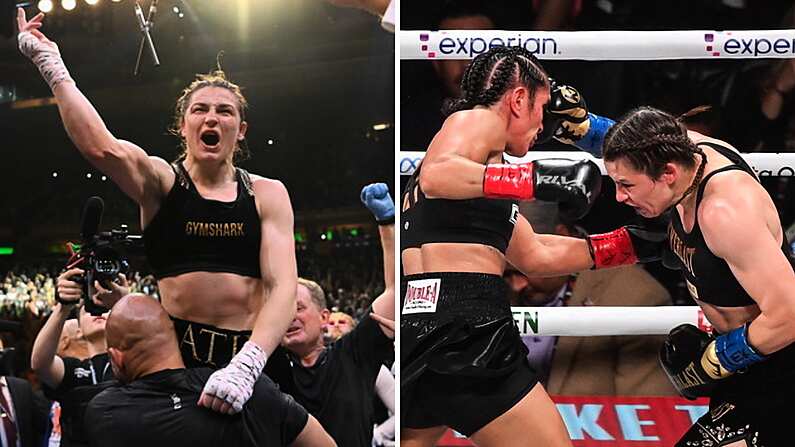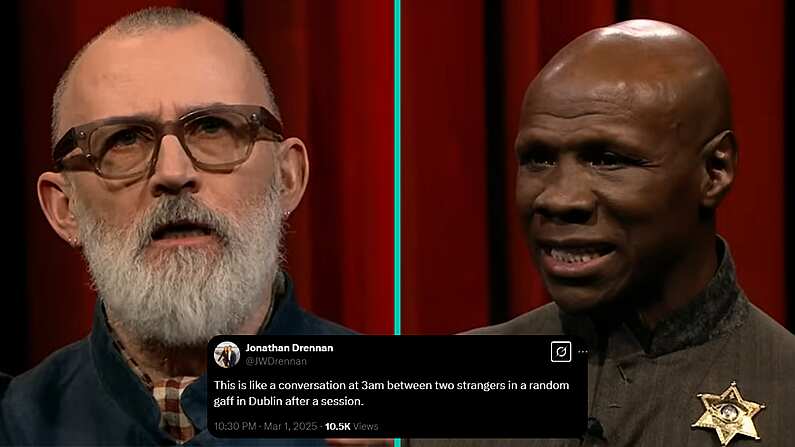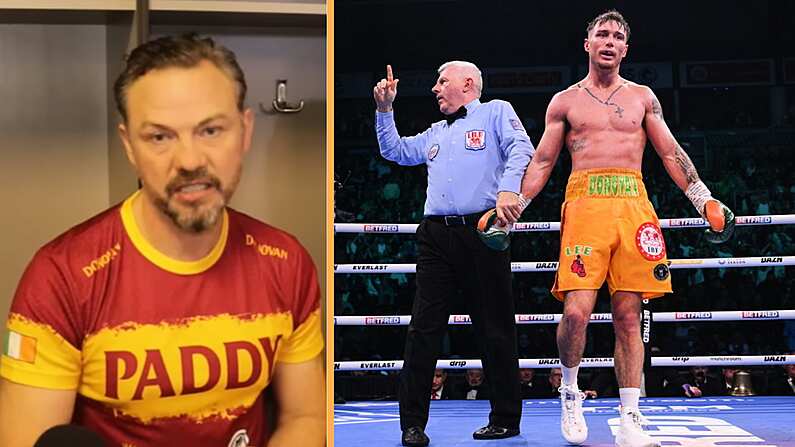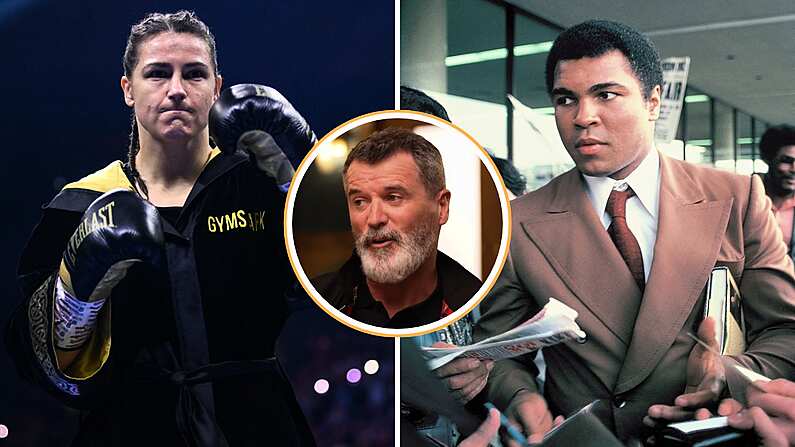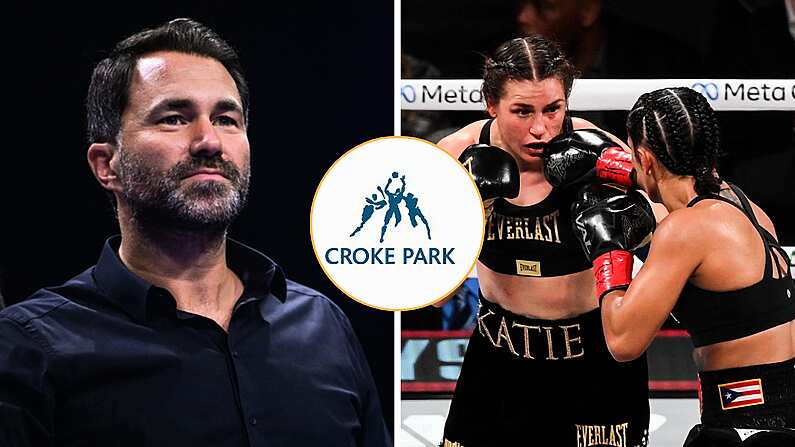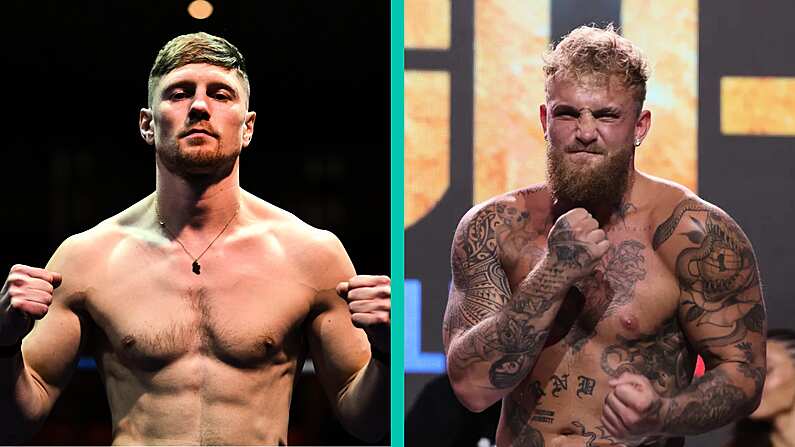A long-awaited sporting comeback has been afforded a prospective conclusion this afternoon; Tyson Fury will fight an as yet undetermined opponent on June 9.
Having not fought a competitive bout since becoming the unified heavyweight boxing champion of the world in 2015, Fury's victory over Wladimir Klitschko preempted a steep spiraling of his story thus far.
Inciting widespread outrage for comments deemed sexist and homophobic shortly thereafter, issues with anti-doping regulations, and his deteriorating mental well-being, have largely framed Fury's public persona in the years since his memorable win.
Speaking to the BBC ahead of his return to the boxing ring, Fury explained how his outlook had changed in a troubling interim, and what had convinced him to return to boxing:
This time I'm fighting for all the drug addicts, alcoholics, people who have mental-health problems, people who have all sorts of problems.
Domestic violence, whatever you want to call it, I fight for these people. I fight for the oppressed people. I'm not just fighting for me.
I fight for all these people to give them hope. If I can come back from the brink of no return, so can they.
Stressing that he is now filled with a hunger that he previously did not possess, the prospect of material gain is not what is driving him:
I'd say I'm hungrier now than I was before I won the world title. I'm not hungry for fame, or money, or belts, because I've got all that, I've had it all in the past, and it didn't really make me very happy.
Sure to be one of the stand-out events in the boxing calendar this year, Fury's return will only serve to enhance expectation that sooner or later, he will square up against the man currently in possession of "his" belts, Anthony Joshua.
You can watch Fury's interview below.
'Without me there'd be no flair in the heavyweight division'.
Tyson Fury has lost none of his old confidence... pic.twitter.com/Ups4Gtmcx0
— BBC Sport (@BBCSport) April 12, 2018

